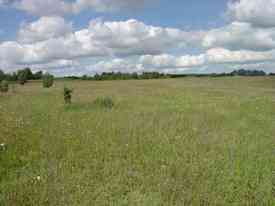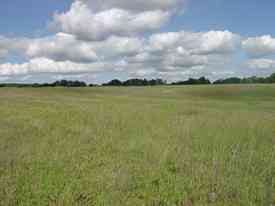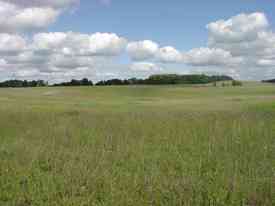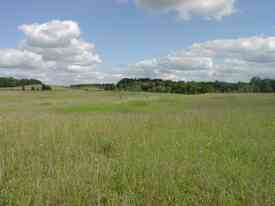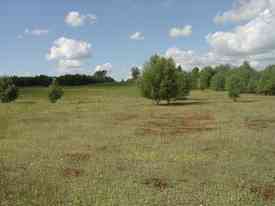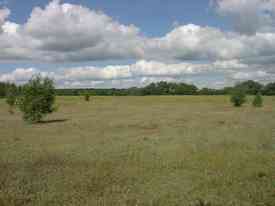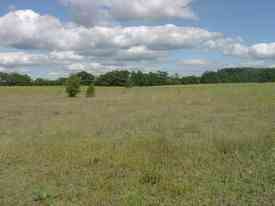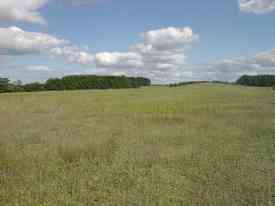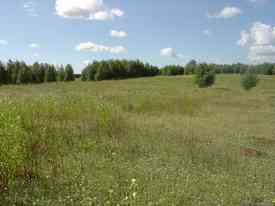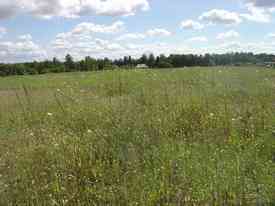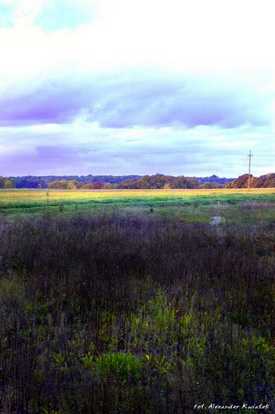THE PRUS SOCIETY
AN APPEAL TO THE EUROPEAN PARLIAMENT FOR THE REVITALIZATION
OF THE PRUSSIAN NATION
AND ITS HISTORY FORGOTTEN.
Today Europe ended the second millennium and is now in its third.
Apparently, it still cannot decide whether to take a minute and reflect on its heritage of the
last two thousand years, which were extremely horrible and barbaric. One would think that only
a beast would do what a human being did to another human being and humanity in general.
Statistics of these acts, for sure would make it possible for Europe
to discover that it was one of the most barbaric parts of our globe. But a research leading to
these statistics neither in the past, present nor future will be conducted, as this would bring
attention to nations that had committed the greatest crimes and human disasters in the history of Europe.
One would like to believe that history would perform this duty and write
its past accurately, but in fact it is the opposite. Each nation falsifies its past by writing
what is convenient for them to hide the truth of their murderous deeds against humanity in order
to protect their influence and national interest.
Eliminating people and nations through the centuries became a discipline
for Europe. Now, this behavior is being compensated with propaganda about European achievements
in the field of economics, culture, education and social development.
The memory of human sufferings in this hellish bucket of horrors called
Europe, the dreadful deeds human beings did to other human beings, whenever possible is being set aside.
In their discoveries, did Leonardo da Vinci or Nicholas Copernicus need to exterminate and subject
human beings to sufferings to achieve their discoveries?
I am asking, who authorized or under what law, barbarism became a
European trade mark?
My question is how it can be explained that a nation which performed extermination and destruction of
another nation without conscience and scruples adopts that people‘s ´
identity and creates
a false state in the name of the eliminated nation. Yet, in the 21st century the inheritors of
this barbarism claim that they were actually the Prussian victims.
The victims, the authentic Prussians, are not related to the Germanic
race at all and have had nothing to say for seven hundred years. These people were laid on the altar
as the victims of Christianity as interpreted by the Teutonic race, which appropriated themselves Christianity.
Today their descendants are sowing seeds of revisionism, conquest, crime and hate.
One can only see what has transpired in the past, through what they did, and is now history as the Second
World War. Their actions in that world war, which was not too long ago, remind us of what they did in
the First World War and seven hundred years ago to the Prussians.
The Prussians, a Baltic nation a thousand years before Christ, as past
historians tell us, lived on the territories of present Warmia and Mazury (Poland), the region
of Kaliningrad and some in Belarus. In this part of Europe they were the oldest inhabitants and
were known to Ancient Greeks and Romans from the first century. The Prussians were well known
through the trading of yellow amber, and to this day their roots are tied to amber.
What characterized them was their love for their home, independence and freedom.
Their trade mark was hospitality and the assistance to lost travelers on the Baltic Sea. Unfortunately,
circumstances changed circa in the 10th century when Slavic people started arriving at their borders.
It started from simple skirmishes. Then, at the end of the 12th century the skirmishes developed into
fiery battles. The main reason for these battles was foreigners infringing their borders.
The ambitious Polish Dukes tried to gain control of the Prussian territory. Numerous battles by
Polish Dukes did not give them victory and the Prussians continued their independence and freedom.
The Polish Dukes also tried to conquer the Prussians under the guides of Christianity, and
that also failed. Whenever disagreements started with the sword the Prussians were able to meet
the challenge and were able to turn their enemy away without being conquered.
Unfortunately, the Prussian victories created an illusion they did not
see what the Europeans had in store for them.
The unemployed Christian Teutonic Order of Knights, in other words Germans,
were called upon the Prussian border for the purpose of turning Prussians from paganism and enforcing
them to accept the faith of Christ. The purpose of this was to turn the Prussians into the next
Christian nation in Europe. Even the Roman Pope had not foreseen the murdering and degrading tactics
that German knights used.
It is noted that the butchered Prussians murdered by this Order were buried
without crosses.
The German Order sowed death and destruction on the innocent Prussians and their land. They were not
interested in spreading Christianity, their goal was to totally defeat the Prussians and claim their land.
The Prussian people together with their Dukes fought heroically in the
defense of their homeland, independence and the freedom. These brutal, bloody battles lasted for
over fifty years during XIII century.
The Teutonic Knights were able to add other countries to their ranks against
the Prussians. These countries were Francons, English Nobles and knights of the Netherlands.
These countries quickly recognized the real intentions of the Germans, that it was not their goal
to turn the Prussians into Christians but to get their hands on their land. Because of the barbaric
and brutal treatment of the Prussians by the Orders Knights the other countries abandoned the
Teutonic Order of Knights claiming it was against their honor and human code.
Conquering of the Prussian people by the Teutonic Order consisted of
different elements of battle. After they had won the battle they would murder everyone or they
would send the defeated to other areas. The goal was that the defeated Prussians would lose contact
with the remaining Prussians, and would not lead their people to regain lost liberty and freedom.
Actually, what was left of the Prussian people the Order used as slaves to build defensive castles,
which were often built at such distance that smoke signals could be seen from each castle.
There is no other place in Europe where there are so many castles in such
a small area. The Prussians were superimposed by the Order to pay high taxes. This did not allow
them to lead a good and honorable life. The Prussians began to escape but were quickly captured
and extremely punished. Punished were also those who gave them sanctuary and a place to hide.
The women were not shown mercy, they were raped repeatedly.
Regardless of pacifications and extreme persecution the remaining Prussians
organized uprisings some of which lasted as long as ten years. Unfortunately, the Germanic military
reserves and strength were much more powerful than the Prussians were able to overcome. Because of
the Prussian uprisings the German Order performed bestial acts for those times. Their methods were
murder, burning of homes, and their possessions. Can you call this Christianity when the Prussians
were murdered together with their children? Only women and very old people were left to live.
The Order‘s goal was to eliminate the Prussians.
You can easily make an analogy of this to what happened in
World War II: concentration camps, executing professors, government employees, and people of
culture, sportsmen, pacification and execution of Poles for harboring Jews. We all were witnesses
to these atrocities in the 20th century. The same people performed the same acts seven centuries
ago on the Prussians.
This indicates that what the knights of the black cross had done
seven centuries earlier was not forgotten and was applied in the 20th century.
Many battles and unbelievable blood baths cost the Prussians 50% of
their population. The remainder of Prussian people fled. Most of them escaped to Poland, smaller
numbers to Lithuania and the land of Rus. The remaining Prussians, who were tied to their land,
were used as slaves without any rights. They could not emigrate and were used for labor.
Over the next several centuries the Prussians were relegated to the lowest class of humans.
At the same time there was an intensive colonization of the Prussian land by the Germans.
The facts which follow will prove that the statement above is authentic.
These statements were taken from historical annals. The material is overwhelmingly frightening
and if it was not based on facts it would be unbelievable. This material also summarizes the
character of the Teutonic Order of German Knights and one can reflect that they used atrocities
and murder to achieve their goals.
It can be summarized that the 21st century, so called, German Prussian
who claims that he was victimized and preaches revisionism, and is asking compensation for lost land,
and resettlement of their citizens needs to deeply reflect on the truth, and anyone that sympathizes
with them must also look at the real facts.
TEUTONIC CONQUEST
The Teutonic Order started the conquest of Prussia in 1230 through 1283,
a total of 53 years1. The description of their wars with Prussians was scenes
of flowing blood, hangings and burning alive2. There were cases where complete villages
were eliminated3. Historians write that overall through these wars and emigration the
population of Prussia dropped from 20% to 50% depending on conquered4 districts.
It is estimated that from 170 000 Prussians that were living before the conquests5
at the end of 13th century there were only 90 000 left6.
The information above is concrete evidence of planned extermination
of the original Prussians by the Germanic Order of Knights.
HORRIBLE MURDERS, ROBBERY AND DESTRUCTION
1. During the conquest of the land in Chelm the Order caught Pipin,
a Prussian leader. Despite being borne a noble he was treated horribly. He was tied to
a horse‘s tail and dragged to Torun where he was hanged on a tree. However, before that, he was
horribly tortured. His insides were torn out and nailed to a tree, he was beaten and forced
to run around the tree until he fell7. It is worth adding that Pipin’s castle was
totally destroyed and his followers were murdered. The same happened to his uncle and his
followers8.
2. The Pomezanian land of Resia was frequently invaded by divisions
of the Order and supporting German regiments destroying with “robbery, fire and blood bath”,
as the Order‘s chronicler honestly describes9.
3. They behaved exactly the same way when conquering the land of Warmia
later called Balga: “they invaded villages, destroying them with fire and robbery”10.
They conquered the castle “taking part of the people as slaves, and murdering the rest”11.
4. A short time later the Order took the Prussian fortification of Partegal
which “they burned to ashes; all of the defenders were executed, to the last one”12.
5. During the first Prussian uprising 1242-1249 the Order took over
the fortification in Old Dierzgon where they “caught the inhabitants and killed all of them”
unarmed men, women and children13.
6. Also in the battle at Dzierzgon the Order not only killed all the
Prussians they also took “their wagons with horses (food and arms) and pulled them to their
castle”14.
7. In about 1254 in the process of the conquest, the Order entered
the richest Prussian land of Sambia. First they destroyed the neighboring land of the future
Lochstadt castle by burning, “killing Prussians and taking many people into slavery”15.
8. During the expedition to Sambia in 1254 by the Czech king, Ottokar
who supported the Order, a Prussian leader, Gedune cooperated with the invaders. As a reward
he was given a secret sign to be used by him to save his people when attacked. However, Gedune
was late in arriving to his village, and found “his domain and relative‘s land burnt.
His servants, relatives, and brother called Ringele, and all his cousins were murdered”16.
9. During the same expedition Ottokar together with knights of the
Order “burned everything that could be burned, many people were taken into slavery and many murdered”.
In general “such a slaughter was performed on the Sambians that the elderly seniors offered them
hostages so the whole nation of theirs would not be extinct”17.
10. The next goal of the Order‘s conquest was the land of Wohnsdorf
which was defended by the castle of Kapostete. This fortification was completely devastated
and its surroundings destroyed, robbed and burned. The people were captured and killed18.
The same thing happened to the conquest of the territory called Ochtolite”19.
11. Soon after one of the masters of the Teutonic Order from present
Kaliningrad invaded the land of Natangia “devastating it with robbery and fire”. Murdering their
leader Goduke, “as well as taking two of his sons, and many others, his wife with servants, women,
children and booty” as theirs20.
12. A brother of the Order by the name of Wolrad, commander of Natangia,
invited many wealthy Prussians from the nearby of the castle of Leptenburg, “and when he got them
drunk [....] left them, locked the castle with all the nobles inside and set it on fire, burning
it to ashes”21.
13. A brave Samb named Nalub for a long time did not surrender to the Order.
Finally, he was forced to abandon his domain. The Order “murdered all of his servants and completely
devastated his land”22.
14. The greatest Prussian uprising was in the years 1260-1274.
In the beginning it was successful but eventually the German oppressors won. Especially,
heavy battles took place in Sambia, where some people were forced to run away, some were caught
and enslaved and who remained was killed23. The Order‘s chronicler bragged how they defeated
the Sambians with the sword and took their women, children and burned their homes down24.
15. The district of Rinow in Sambia resisted the knights of the black cross the longest.
It surrendered only when the Order “killed all the men, took women and children with
their possessions”25.
16. During the uprising the Prussians several times tried to win back an important
castle in Bartoszyce. One of the most horrific episodes of these battles was when the
Teutonic Knights “on prepared gallows erected in front of the castle gate hanged 30 Prussian hostages,
who were kept as prisoners”26.
17. In the second half of 60‘s the district of Solidow in Natangia
was “devastated with fire and robbed” and as Peter from Dusburg praised “many killed and taken
as slaves”27.
18. Land of Natangia was frequently devastated by Teodoryk from Meissen,
who “three days and nights [...] was crossing Natangia, devastating with fire and robbery”28.
19. A famous leader of Natangans, Duke Herkus Monte caught by the knights of
the black cross was killed in the manner, not practiced even in those days, not worthy of a brave
knight “ he was hanged on a tree and when he was hanging in addition he was pierced with a
sword”29.
20. An identical method was used to murder Glappo Duke of Warmia30.
21. Tremendous devastation during an uprising went through the land of
Pogezania when the Order‘s army invaded “devastating from one end to the other with robbery and fire.
Men were killed, women and children taken away into slavery”. They took over one of the most important
castles in Lidzbark “all caught people were murdered”31.
22. The next land destroyed with “robbery and fire” by the Order was the
district of Lethowis in Nadrowia. After the seizure they “killed or took into slavery many
people, [...] castles and surroundings were set on fire and burnt. They stripped the land of
horses, cattle and valuables and with difficulty could carry them away”32.
23. Similar things in the district of Nadrowia-Kathow, where they
conquered the castle Otolichia “and murdered all men, took into slavery women and children
and the castle was completely burnt down”33.
24. The same destiny met the people of Nadrowia, inhabitants of the
Kaminiswika castle34.
25. After defeating Nadrowia next in line was Skalowia. Similarly as in
previous cases killings35, slavery, robbery, devastation with fire of places like Ragneta,
Ramige and Labiau36.
26. Conquered Prussians once again stood up to fight for their freedom and
in 1277 Pogezans started an uprising. So it happened that again the victors were knights of the
Order who “invaded the land of Pogezans, killing an unaccounted number of men, devastating territory
with fire and robbery, kidnapping women and children and taking them away”37.
27. The final act in the bloody conquest of Prussia was the people of Jacwiez.
First they intruded the district of Kimenow “many men were killed, [...] thousands of men were kidnapped,
taken away as slaves”38.
28. Afterwards, the district of Meruniska underwent destruction in
which 800 “men of great honor” were killed, and 600 “of both sexes” taken into slavery.
The rest was murdered, the district was ransacked and burnt down39. It is worth
noting that in contrary to Nadrowia and Skalowia some men were saved. The Order started to worry
about the shortage of labor.
29. In the conquest of Jacwiez the Order was supported by volunteer
bandit knights, who raided villages and their inhabitants “caught and murdered”, men, women
and children40, robbing what was left41.
In another case of an assaulted village “ten men were murder while taking a bath [...], horses
taken away, cattle and other booty together with all women and children”42.
30. Step by step the Order with murder, fire, sword and slavery took
into possession the districts of Jacwiez - Pokima43 , Krasima44 , Silia45,
Kirsnowia46 and others47.
31. The conquest of Prussia had its end in 1283. At least twice Prussians
tried to recover from above atrocities by taking arms and fighting for their freedom. In both cases
they suffered from a defeat and participants themselves “found death from different
tortures”48.
BLOODY BATTLES AND POGROMS
1. During the conquest of Pomezania by the river of Dzierzgon an enormous
battle occurred (ca. 1235) and is described by the Order‘s chronicler as “a blood bath
of Prussian people,
5000 were killed that day”49. Numbers in the middle ages were often exaggerated by the
chroniclers, but it does not change the fact that in battles Prussians were not salvaged.
2. In the battle near Balga Teutonic Knights murdered all Prussians
“extermination was complete, so that not a single one was saved who could carry the news of
what has happened to their next of kin“50.
3. In the year of 1263 in a bloody battle in Bartoszyce 1300 Prussians
were slayed (“hardly anyone survived”)51.
4. In the second battle at Dzierzgon, during the second uprising of
Prussians, the Order “killed so many of them that never before were so many people killed in
one day”52.
5. In the battle of Bezledy, in the end of the uprising, the army of
the Order murdered over 2000 people of Jacwiez”53.
FORCEFUL RESETTLEMENT
Besides destruction and loses due to wars, the depopulation of Prussian
people was caused by resettlements forced upon them by the conquerors into other Prussian regions.
The people of Jacwiez, Nadrowia and Skalowia suffered the most. They were placed on the
Lithuanian border. The above examples of battles for Prussia prove that sufficiently.
By resettlement of these people it was obvious that the Tautens formed an empty natural
defensive region54. This is how a Jacwiez noble, Cantegerde together with 1600
natives was settled in Sambia55. Another noble Russigenus arrived with his family
to Balga56. In the south similar resettlements took place in the territory of
Galindia and Sasinia. This resulted in those territories being deserted as indicated by
Peter from Dusburg in a chronicle titled “Grosse Wildnis”.
This was not a small resettlement, for example settled on Sambia
Prussians were called Jacwiez, they were living there to the 16th century and
there was a distinct enclave which was called “Sudauischer Winkel” (Jacwiez Corner 57).
The Barts underwent another resettlement in Pogezania and even tried to uprise in the year 1286 58.
The people of Galindia in Warmia we know from the Plastwich59 chronicles and the Teutonic
Order also performed a massive resettlement to Sambia, Pogezania and Natangia on them60.
Attaching great value to resettlement from bordering lands by the
Order may indicate the case of a heroic Jacwiez noble, Skomand Younger, who could not fight
the Order any longer and voluntarily, emigrated with his people to Rus. However, he
did not find this situation to his advantage and quickly returned to his fatherland.
The Teutonic Order immediately ordered him to move with his family and followers westward
in the area of Gorow Ilawecki61.
HOMELESS PRUSSIANS
The next contribution to depopulation of Prussian people was by
running away from the Teutonic Order. The places of their exodus were Poland, Lithuania
and the land of Rus. Poland testifies to the names of Prussian origin and their coat of
arms62. An example is the Prussian Teodoryk castellan of Bydgoszcz known from
Greatpoland Chronicles63, or the palatine of Tczew and Gdansk, Wajsyl and his
brothers, Glabune and Sadyk and his descendants Dziwana or Ramot64.
In the year 1257 the sons of Prussian Letauda ran off to Mazowia, however the Order
later asked the Prince of Mazowia for their return65. In the land of Rus
researchers confirm by archeological and onomastic discoveries a strong group of Barts
and Skalowians who settled in Grodno, Lida and Slonim66. In this area and in
Lithuania the Prussians from Jacwiez settled and they numbered at least 500067.
An example of this emigration was their leader from the Prussian
Kymenow, Skurdo and his people68. One can hypothesize that the emigration of
the Prussians contributed to their defeat by the Order, because the ones that fled were the
active, and wealthy, the ones capable of fighting. Taking into account the ones who
emigrated (ca. 10 000), there were at least 1000-2000 men capable of carrying arms69.
PRUSSIANS SERVANTS OF THE TEUTONIC ORDER AND THE PRINCIPALITY OF PRUSSIA
A definite amount of Prussians stayed on the territories conquered by the Order.
However, only a small, mainly prosperous amount of Prussians found themselves in a new
situation and made a career. The remaining was grouped together in villages ruled by the Order.
They were subjected to high taxes, hard labor, and were exposed to a dominate role by the Order
until the 15th century70.
The social life and laws discriminated the Prussians even more than the new Polish
and Lithuanian settlers, not to mention the new German colonists.
Internal changes and the weakening of the Order in the 15th
century made it possible for the Prussians to ask for improvements in laws concerning them.
First the Grand Master of the Order Conrad von Erlichshausen, in the year 1441, confirmed
that widows and their daughters would receive under Prussian law half of the mobile possessions,
the remainder together with the land was taken by the Order71. Later, in 1441,
the Grand Master agreed that the land taken by the Order in the area of Elbing and Dzierzgon
will be given to the daughters of the deceased, provided they marry a man that the Order accepts72.
However, when the Grand Master Henry von Richtenberg in the year 1476 issued the so called
Sambian Privileges, he allowed in the case of Prussian knights to keep everything that belonged to them.
The remaining (Prussian serfs) were left out, with no hereditary laws73.
At the same time, their responsibilities to the Order were very high, they had obligatory
military service, corvée and had to give levy74.
Much is said about the Prussian situation in the successive edicts
(called Landesordnungen). One can recall suspicious edicts from 1310, at the time of Grand
Master Siegfried von Feuchtwangen in which the Prussians had to attend Holy Mass, and the
attending Mass German‘s duty was to watch that they were not using the Prussian language
and force them to use the German language. Furthermore, in this edict it was forbidden for
a Prussian to hold office of influence or to hold office of significance under the German jurisdiction.
These significant offices were not to be held in the cities, suburbs, villages, courts,
taverns and public houses. It was not allowed for Prussians to serve beer, but they were
allowed to settle and work on abandoned lands75. This was limited only to a certain
group of Prussians and not to the total population. In this light this type of order seems to
be understandable because it was feared that if all Prussians received some land, the German
settlers would be exposed to the Prussian way of life, and this was feared the most by the Order.
The next edict pertaining to the Prussians came in the year 1406 during
the rule of Conrad von Jungingen. It concerned settling forest areas, mainly the south east areas
of Prussia and stated that whoever wanted to settle in German villages must ensure no Prussian
would settle on a German possession. It was forbidden for Germans in the cities, German villages
and taverns to accept service of Prussian laborers or servants. If for some reason they found
a Prussian employed in that service he would be subjected to the Orders court.
Moreover, no free Prussian could employ a Prussian laborer or
servant without knowledge of their parents. The parents had the right to make them return.
If the parents agreed they could serve. It was also underlined that no Prussian woman or
man was allowed to serve in German cities or villages and operate a tavern76.
It was forbidden for Prussians to settle in villages under the German law. It was further
forbidden to take Prussians into service. It was prohibited for the Prussian people to
leave their villages because they were serfs of the Order and the Order profited from
their labor77.
This decree happened to be unsuccessful and this is confirmed by
the Prussians themselves. In the year 1427 there were a couple more items that pertained to
the Prussian people - first anyone who had Prussian serfs had to make sure that they
participated in the Holy Mass; it was also forbidden to accept men and women of Prussian
decent to serve in cities, which really meant to work also in the villages, taverns,
fisheries and in the sale of beer. Those who employed Prussians had to pay monitory fines.
It was also forbidden to sell German property to Prussians,
agriculture land, and plots of land under the German law. The following point was again
repeated that it was forbidden for the Prussians to work for the Germans without their
parent‘s agreement78. In theory these edicts were repeated, however this time
disobeying these edicts resulted in fines. Repeating these decrees appeared to be
contradictory, for example, accepting Prussians for work and even selling land under the German law.
All the edicts for the year 1427 were repeated by the following Grand Master Conrad von
Erlichshausen in 1441 79. The only difference was the selling of German land to the Prussians.
In the same year 1441 the Grand Master issued another edict that
forced free Prussians in the forestry to give horses during hunting season or other escapades
by the Order. In the same edict it was directed that Prussians who owned land under the Chelm
Law inherited this land and the Order could not take it away from them80.
This last point indicates and demonstrates that despite the Prussians receiving these
rights they were still treated differently than other settlers.
The following edicts in the year 1444 repeated the previous edict
however, fines were added if the edict was not obeyed. If someone would hire a Prussian
for service or work that person would have to pay half of a fine81.
Once again in 1452 the edicts were repeated82. In 1482 it was forbidden to hire
Prussians and teach them a craft and trade (only cities and suburbs)83.
Here again a possibility was mentioned to sell land by a peasant as long as it was under
the Chelm Law, and with agreement of his master, and the right to live where he wanted.
In the case of Prussians it was declared that the old law should be maintained84.
It was confirmed that there was a possibility of Prussians to leave their estate,
however this applied only at the will of the masters. If the masters (usually the Order)
did not allow, the Prussians could not leave. In the following edict of 1503 it was reminded
that Germans must teach Prussians and Lithuanians Christianity85.
This subject was widely expanded in the year 1540, it was first
confirmed the Prussians could settle in cities only with the approval of their masters.
The next step was the question of inheritance by free Prussians and peasants.
In the peasant villages under the Chelm Law the son inherited what was the father‘s;
if there were more sons, then the master chose one of them, and left him on the father‘s
possession. The rest of the brothers were not allowed to leave that land without permission
of the master; in the case where only a widow and daughters were left, the master chose a
husband for one of them and he would inherit the land. Mobile possessions that were not
connected with managing the property were distributed among the widow, children, and relatives
of the deceased peasant. This was also the case when the land was inherited by the new owners
(husband of widow or daughters). In case there were no inheritors, the deceased‘s relatives
took care of the land, however, only those who were allowed to participate in mobile
possessions86. Among the free Prussians the estate was inherited by the son
that was chosen by the local ruler, if there were other sons they were to be settled by
the local ruler in other places. In the case where the chosen son who was to inherit the
estate died with no children, the land went to the local ruler87.
In the year 1550 during a conference there was a proposal to
improve and add to previous edicts. The proposal said that after the death of a brother
the remaining brothers or sisters would inherit the deceased brother‘s estate.
Freeing the Prussians from service would also apply to his inheritors, they also would be free.
In the case of mobile possessions it was proposed that the Chelm‘s Law would be observed
by the inheritors (inheritors were sons and daughters). Free Prussian brothers were insured
freedom in resettlement88. This was simply a proposal however it appears that it
did not become law. The enactment of a new edict finally came in 1557, and in the case of
inheriting land under the Prussian law, new changes were made. The son continued to inherit
the land as long as it was approved by the local leader who was German. The remainder, for
example peasants were allowed to learn crafts and trade. The owner of the estate had to
make sure that the sisters or widows were taken care of. The brothers (free) were to be placed
on other free land. If that was impossible or if they did not want this, they could negotiate
with the local authorities to leave (by buying themselves out). In the case of the inheritor
dying and leaving only a daughter the authorities would pick a husband for her with her approval.
In this case her husband became the new owner of the land. If there was no daughter the land was
inherited by the deceased brother89.
The Prussians could apply for a free status under the Chelm Law if they
served as pastors. Prince Albrecht ensured them this status in the year 1541. This status could
be passed on to the next generation90.
The above indicates that the Prussian people‘s rights were not consistent
but were for sure deficient compared to other ethnic groups. The Prussians did not have profitable
rights of inheritance, however they were profitable from the ruler‘s point of view.
They were not allowed to sell land and acquire new land; they were not allowed to go
to new villages as servants, craft or trade workers. Only after the second half of
the 15th century Prussians were allowed to settle in German villages.
All of this made it difficult for the Prussians to colonize the forest, basically, one
can say that they did not have rights they could rely on, and they were relegated to being serfs.
Characteristically, only the Prussians were under the Order‘s jurisdiction, no other ethnic
group was under their jurisdiction91.
DISAPPEARANCE OF THE PRUSSIAN RACE
In the 16th century a critical moment arrived for the Prussians,
in only several decades they lost elements which differentiated them from other ethnic groups
living on their land. What happened? One of determining factors was the adoption of the
Christian faith92. Baptizing was not enough to take away the old believes and habits.
The Order did not place much weight on missionary action93. The burden of teaching
Christianity was first taken by the Order and the Christian Church. The lack of deeper religious
life of the Prussians was due to a language barrier. There were not enough priests who knew their
language, there was a shortage of interpreters, and many times the elders had to go to children
for help who easily learned the German language, even for confession. Only in Lidzbark children
were educated how to help the priests. Therefore one can not blame the Prussians that even in 15th
and 16th century they still gathered for pagan rituals94.
The above situation changed reformation. There was tremendous pressure
for religious education, three times the catechism was interpreted, three times into Prussian
language (1545, 1561). There was big pressure to teach the Prussian language to a larger number
of priests. The priests were given a scholarship of the University of Krolewiec today it is
called Kaliningrad95. However, immediately an issue arose from the candidates96.
This resulted in special care taken to get interpreters and schooling Prussians in churches,
still in the German language. All of these changes were followed by ruling out pagan traditions
and habits97.
One of the last stages in loosing Prussian identity was losing of their language.
Even in the first half of the 16th century the catechism was interpreted into Prussian language.
Prince of Prussia, Albrecht, of German descent, was still giving scholarships to the Prussian to
learn the German language. At the same time, the Prince was complaining that in his time there
were no priests speaking in the Prussian language98. The fact is that during the
visitation of a Christian church in Sambia in the year 1569 there were no interpreters in some
districts, which only shows how fast the population was turned into Germanic habits
and culture99. During the second half of the 16th century there was no discussion
of forming Prussian schools, only German, Polish, and Lithuanian100. In the 17th
century the chronicler Christopher Hartknoch mentioned that only elder people knew some words of
the Prussian language. He also said something very interesting before the twentieth year
(that means the first half 17th century). Hartknoch mentions that he knew a man that knew the
Prussian language, and even its dialects. He was bragging about this to a doctor in Konigsberg101.
One can see the complete disappearance of the Prussian language within not even a hundred years.
Why did this language disappear so fast? There were many reasons for that.
The process of forced assimilation, and equalizing Prussians with other ethnic groups, eliminating
their engrained habits, and above all, forcing them to go to parish schools (a school in each parish,
however in the German language)102.
This was the final German solution in eliminating the Prussian race and their language!!!
In direct line I am a descendant of the Great Prussians, my
identity comes from the heritage of the Duke of Resia (today Prabuty), who left a legacy in the
year 1235 in the battle of Dzierzgon.
His people came from Pomezania.
I am a citizen of two extraordinary noble countries, Polish and American.
These two countries have never wavered in helping others in need. They never took advantage of
weak neighbors and treacherous military attacks or tried to biologically eliminate other races.
I am a representative of the Pilewski people and the only one at this
time who has possession of documented deep roots about the Prussian people. Today they are
integrated with Polish and American people.
Pilewski descendants of the Prussians will never forget what fate Europe
had installed upon them. We will demand the respect and remembrance of our noble predecessors.
From Europe we want revitalization and remembrance of the Prussians who
had nothing in common with the German race.
The extermination of the Prussian people should be on Europe‘s conscience.
It can no longer be ignored, or forgotten, because the same pathology arrived in the 20th century.
To Prussians that pathology happened seven hundred years earlier with the Germans taking their land,
honor, and name.
In remembrance of Prussians we would like the following:
1. On Warmia Mazury (in Poland) an appropriate monument in remembrance of all
the Prussian people and their leaders.
2. On Warmia Mazury we would like a Prussian museum financed about their history.
3. On Warmia Mazury we would like a financed archeological and ethnographic exploration.
I am calling, appealing and begging Europe to pay respect to the humble request above.
Europe will not bring back the Prussian people but remembering them will remind Europe that this type of
history should not be repeated again on this continent.
Slawomir Klec Pilewski
A SHORT STORY OF THE TEUTONIC ORDER
To fully understand the Appeal to the European Parliament, it is vital to
present a short, historical outline of the German Order of the Blessed Virgin Mary.
The beginning of the Order is noted in the year 1190 on the German territory.
It was established by the townsmen/bourgeois of Bremen and Lübeck. Their intention was to send a
help aid for the Christian knights in Acre on the territory of Syria. In 1198 it transformed into
an order of knights
In the year 1187, for the first time, the Order fell into sultan Saladin’s
hands from whom the master and his suite had to escape. They were known of little chivalry but
on the territory of the then Europe their significance could not be underestimated.
With other crusaders they defended Acre from Islam without result; they
had to flee by sea. While getting aboard the ships the then German master Conrad von Feuchtwangenza
promised the brothers a revenge on the pagans in Prussia to compensate for suffering a defeat at the
Muslims hands.
After driving away the Order by the world of Islam from Syria and Palestine
the monk‘s aspirations turned elsewhere - to constitute a homogeneous, German-Order country in the
basin of the Baltic Sea through eliminating the Baltic people and their social structures.
A full political support was given to the Order mainly by Popes, therefore
by all monarchy in Europe.
From the year 1200 the Teutonic Order began establishing their financial base.
In the end of the 13th century they already formed an economic power in Europe where they owned enormous
properties. In Spain the Toledo region in the Castilian Kingdom as well as the vicinities of Seville was
also theirs. And on the territory of France, the region of Provence, Burgundy and Champagne. However,
it was Germany that constituted the biggest financial resources of the Order. It obtained huge estates
in Thuringia, Saxon, Bavaria, Swabia, Westphalia, etc. The provinces of Lorraine and Alsace were also
the Order‘s headquarters. It owned venues in Rome, properties on Sicily with a base in Palermo,
a port island, Isola della Doana at the mouth of Venice. The Netherlands, Greece, the Czech Republic,
Austria, Hungary and even Armenia were partially in the clutches of the Order.
On the territory of Germany, not only did they own an economic base but also
human resources including the elite of Christian knights from all around Europe which was used for
the conquest of Prussia. Their wealth was infinite enough to hire an army. They merely lacked their
own country with a local slave force.
In the name of propagating Christianity, which usually meant baptism or death,
Europe sanctioned the cruel conquest of the Prussian people.
To sum up the foregoing, one could say that the German Order of the Blessed
Virgin Mary lacked any moral guidance whatsoever. Men were murdered, captured children were fit for
work and women were used in whorehouses by every castle of the Order.
To end with, a quote of von Kotzebue, a German historian - he described the
Order as ‘a giant with no faith and shame‘ with its power built ‘upon the ruins of
an abused humanity‘.
Slawomir Klec Pilewski
 Stowarzyszenie Prus - polski
Stowarzyszenie Prus - polski